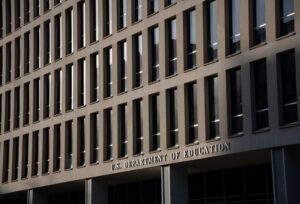Olga, Beatriz, Eliana Isabela, Veronica, and Lilian Teresa Flores Bedregal have been searching for their brother since 1980. Juan Carlos Flores Bedregal, a leader of the Revolutionary Workers Party and an elected official, was forcibly disappeared during the coup d’etat that would bring General Luis Garcia Meza Tejada to power in Bolivia. Investigating crimes against humanity like forced disappearances is an obligation under the American Convention on Human Rights among several international human rights instruments Bolivia is a party to. But although Bolivia has long since returned to democracy, and despite the family’s repeated attempts to obtain information, successive Bolivian governments have failed to open an inquiry into the fate of Flores Bedregal.
Especially worrisome has been the military’s refusal to declassify its archives from the dictatorship era – even in the face of an order to do so from the Supreme Court. The Flores Bedregal sisters brought the case to the Inter-American human rights system in 2006; it is now under consideration of the Inter-American Court of Human Rights. This international human rights tribunal will determine the State’s responsibility not only in the facts surrounding Flores Bedregal’s enforced disappearance but also the lack of investigation of the case.
In our amicus brief, Robert F. Kennedy Human Rights argues that, under Article 13 of the American Convention, which guarantees the rights to “search for” and “receive” information, Bolivia has both procedural and substantive obligations to ensure access to public information – especially concerning serious human rights violations. In the first instance, the State has the responsibility to respond in a timely, complete, and accessible manner to requests for information; this requires a diligent search of all the possible places the information could be found, and the reconstruction and the reconstruction or recompilation of evidence that may have been lost or destroyed. Restrictions on access to information on grave human rights violations, moreover, cannot be justified on national security grounds; rather, such information should be open to not the victim/s and family members, but also society as a whole – to help prevent such atrocities from occurring again.
The Bolivian government has the responsibility to create an administrative mechanism, subject to judicial review and with legal personality, to handle requests for information – and to order government organs to comply.
Olga, Beatriz, Eliana Isabela, Verónica, and Lilian Teresa Flores Bedregal han buscado a su hermano desde 1980. Juan Carlos Flores Bedregal, dirigente del Partido Obrero Revolucionario y diputado nacional de Bolivia, fue desaparecido forzosamente en el marco del golpe de Estado que llevaría al poder General Luis García Meza Tejada al poder. Investigar crímenes contra lesa humanidad es una obligación estatal bajo la Convención Americana sobre Derechos Humanos, ero aun cuando Bolivia a la democracia hace ya varias décadas, y pese a los esfuerzos constantes de la familia de acceder a información sobre la desaparición, bajo ninguno de los gobiernos de Bolivia desde entonces se ha llevado a cabo una investigación sobre el paradero de Flores Bedregal.
Especialmente preocupante ha sido la negativa de las fuerzas armadas a desclasificar sus archivos de la época de las dictaduras – aún frente a una orden judicial de la Corte Suprema de Justicia. El caso fue presentado por las hermanas Flores Bedregal al sistema interamericano de derechos humanos en 2006 y está actualmente bajo consideración de la Corte Interamericana de Derechos Humanos. Este tribunal internacional de derechos humanos determinará la responsabilidad del Estado no solo respecto a los hechos relacionados con la desaparición forzada de Flores Bedregal, sino también de la subsecuente falta de investigación.
En nuestro escrito en calidad de amicus, Robert F. Kennedy Human Rights argumenta que, a la luz del artículo 13 de la Convención Americana, que garantiza el derecho a “buscar” y a “recibir” informaciones, el Estado boliviano tiene obligaciones tanto sustantivas como procesales de asegurar el acceso a la información pública – especialmente sobre graves violaciones de derechos humanos. Sobre las primeras, el Estado tiene la obligación de responder de manera oportuna, completa, y accesible a las solicitudes de información; esto requiere una búsqueda diligente y exhaustiva, y la reconstrucción o la recopilación de archivos que habrían sido perdidos o destruidos. Además, no se puede justificar las restricciones al derecho de acceso a la información por razones de seguridad nacional; más bien, se debe desclasificar dicha información no solo para la/s víctima/s y sus familiares, sino también en beneficio de la sociedad entera – para que se pueda prevenir que hechos similares vuelvan a ocurrir.
El Estado boliviano tiene la obligación de crear un procedimiento administrativo, sujeto a la revisión judicial, para manejar las solicitudes de información – y para ordenar que los organismos públicos la entreguen.



